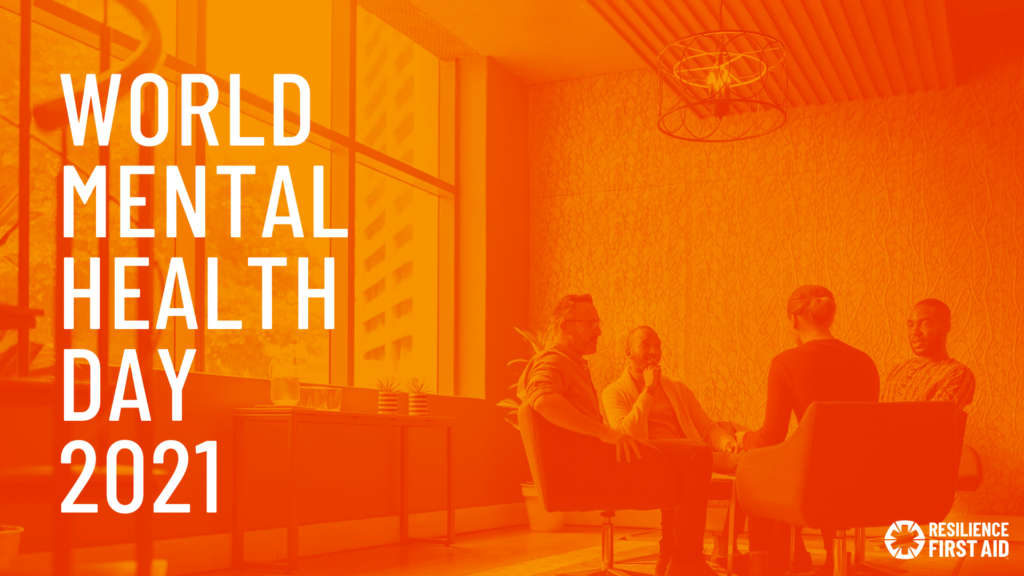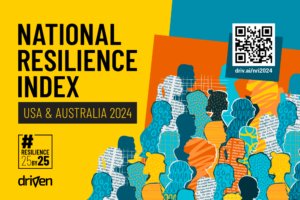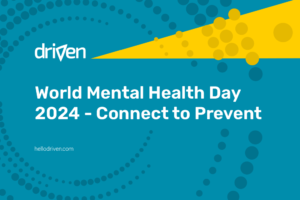What is the aim of the World Mental Health Day?
World Mental Health Day was established to raise awareness about particular mental health topics each year. More and more, the call for awareness has grown into a call for action.
People are struggling more than ever with mental health. Over the last 15 years, there’s been a steady increase in suicide rates. In 2020 alone, calls to suicide helplines increased by 20%.
We need people around the world to take up this challenge and become responders.
What Is the focus of 2021's World Mental Health Day?
This year, the theme of World Mental Health Day is “Mental Health in an Unequal World” with the slogan “Mental health care for all: let’s make it a reality”. This focus speaks into the disruption in mental health services during the covid-19 pandemic and calls for scalable mental health services at all levels.
Research into mental health was already showing a growing mental health crisis – rates of anxiety and depression have been going up around the world long before the pandemic arrived. However, the pandemic has affected the services that were already in place – and has had a particularly damaging effect on certain vulnerable populations, such as students, front line workers and first responders, people who live alone, and people who already have pre-existing mental health conditions like bipolar or depression.
This crisis has shown that mental health services are crucial, and that governments and corporations must take responsibility for ensuring quality scalable services for their people.
When is World Mental Health Day?
The World Mental Health Day is held on October 10th every year, since 1992. Upcoming dates are:
| 2021 | Sun | 10 Oct World Mental Health Day |
| 2022 | Mon | 10 Oct World Mental Health Day |
| 2023 | Tues | 10 Oct World Mental Health Day |
Who organises the World Mental Health Day?
The World Mental Health Day is organized by the World Health Organisation (WHO) and the World Federation for Mental Health (WFMH), but is also supported by many other institutions, companies and individuals around the world.
World Mental Health Day also has spin off themes and organisers depending on country. This year, Australia’s theme for World Mental Health Day is “Look after your mental health, Australia.” Australians are encouraged to make a “mental health promise” – suggestions include “I promise to take time out to play”, and “I promise to eat well and be healthy” and these are shared using the hashtags #LookAfterYourMentalHealthAustralia and #WMHD2021.
What can you do to support World Mental Health Day?
There are many different ways to support World Mental Health Day – whether it’s creating awareness, conversations, or action.
If you are an employer or organisation:
- Sign up for mental health services for your employees or organisation
- Invest in scalable technology
- Consider how inequality may be impacting your people
If you’re a government or community leader:
- Implement policies that make scalable mental health services accessible
- Address inequality in mental health services
- Research new technologies that can help deliver mental health services to people regardless of location
If you’re an individual person looking to make a difference:
- Share on social media using the hashtag #WorldMentalHealthDay or #WorldMentalHealthDay2021
- Call on your employers, leaders, as well as local, state, and federal representatives
- Look into resilience training that address mental health prevention at a community level
- Reach out to someone who may be struggling
- Learn about issues of inequality in your society
If you’re a researcher:
- Share any information you’ve gathered on mental health inequality
More ideas can be found on the WHO website.
What can your company do to support the World Mental Health Day?
If you’re an employer or manager, World Mental Health Day is a great time to consider how you can invest in the quality of mental health services for your employees. On World Mental Health Day, consider making a public show of support for mental health initiatives, and inform your employees of the options available to them.
In keeping with the 2021 theme of World Mental Health Day, consider investing in proactive resilience programs. This type of training can prevent mental health issues while strengthening the culture of your workplace.
What can your school do to support the World Mental Health Day?
Schools have a unique and crucial role to play in helping raise awareness for World Mental Health day. Some ideas to celebrate World Mental Health Day at school include:
- Holding a competition for the best idea for mental health technology.
- Investing in mental health services for schools, such as the wildly successful resilience training at DCEPS in Melbourne. When it comes to mental health services for children, a strengths-based preventative approach is usually more appropriate than a deficit model.
- Consider incorporating mental health policy and practice into your curriculum.
How does Driven support the World Mental Health Day?
The theme of World Mental Health Day this year lines up with Driven’s vision for society. Driven began as a commitment to holistic, community resilience – a mental health service that is designed to be as scalable, preventative instead of reactive, and accessible to everyone everywhere. Our digital mental health platform aims to develop deep resilience in individuals, schools, coaches & psychologists, organisations, and even governments.
For this reason, we developed Resilience First Aid (RFA). Resilience First Aid is a 2-day mental health certification to learn critical skills to proactively support the mental health of other people.
Resilience First Aid (RFA) teaches you strength-based skills to build resilience in others. You will learn how to spot signs of low resilience, learn language to speak proactively, and skills that build resilience.
This is how you can become a responder that proactively supports the mental health of others.
Will you join the movement?
Where can I get help?
Call 000 for fire, police & ambulance
Support for people aged 14 – 25
1300 659 467
www.suicidecallbackservice.org.au
Support for people affected by suicide
13 11 14
Crisis help and suicide prevention
1800 55 1800
Support for people aged 5 – 25
1800 737 7328
Help for domestic violence and abuse
1800 184 527
Help for LGBTQI people and their families
(02) 9382 4530
Help for depression and bipolar disorder
1800 650 890
Support for young people
1300 845 745
Help for people suffering from grief
1300 22 46 36
Help for depression, anxiety and suicide prevention
1300 78 99 78
Help for men with relationships & other issues
International helplines:
Suicide prevention, Suicide.org
www.suicide.org/international-suicide-hotlines.html
International Association for Suicide Prevention
www.iasp.info/resources/Crisis_Centres
Depression, anxiety, suicide prevention
togetherweare-strong.tumblr.com/helpline
List of suicide crisis lines



